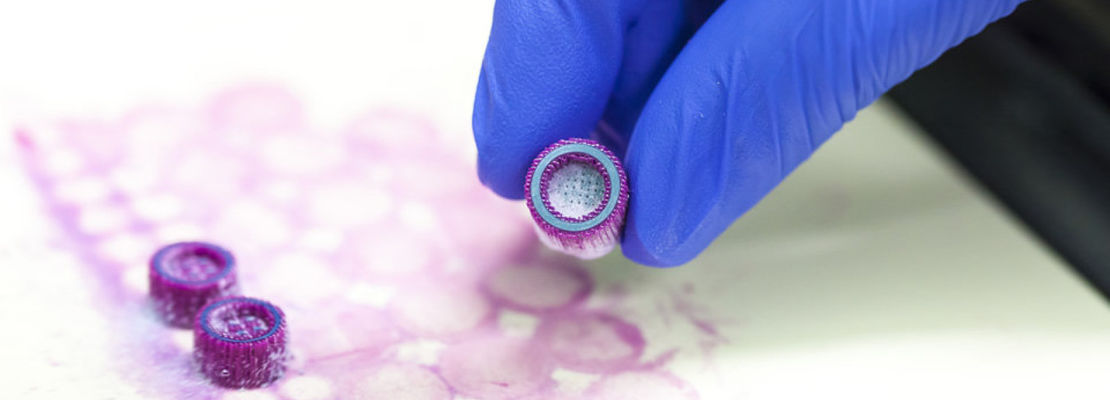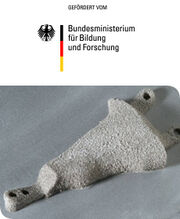Resobone
Generative manufacturing of bone substitute implants made of resorbable materials
The aim of BMWi-InnoNet-joint project, in which three universities and seven business partners are involved, is the establishment of a closed process chain for the manufacturing and the supply of individual bone implants made of bioresorbable materials.
Bioresorbable ceramics and glasses provide the opportunity of being gradually degraded by the organism while successively replaced by newly grown bone tissue. Those kinetics result from the chemical and mechanical properties of biodegradable ceramics and glasses which are comparable to the properties of natural bone. This group of materials is predestined for an application as temporary bone substitute material, because of its bioactive properties. Proved to be particularly suitable as degradable ceramics are calcium phosphates. Bioactive and biodegradable glass-ceramics can be synthesized in multifaceted variations.
The novel generative production process Selective Laser Melting (SLM) offers a solution to economically manufacture individual implants. By using SLM for generative manufacturing, the glass-phase of the composite material is melted by a laser, the ceramic calcium phosphates do not sinter and remain in the glass-matrix. By this process nearly any complex component can be manufactured without forming tools, directly from the 3D-CAD model in very short time








